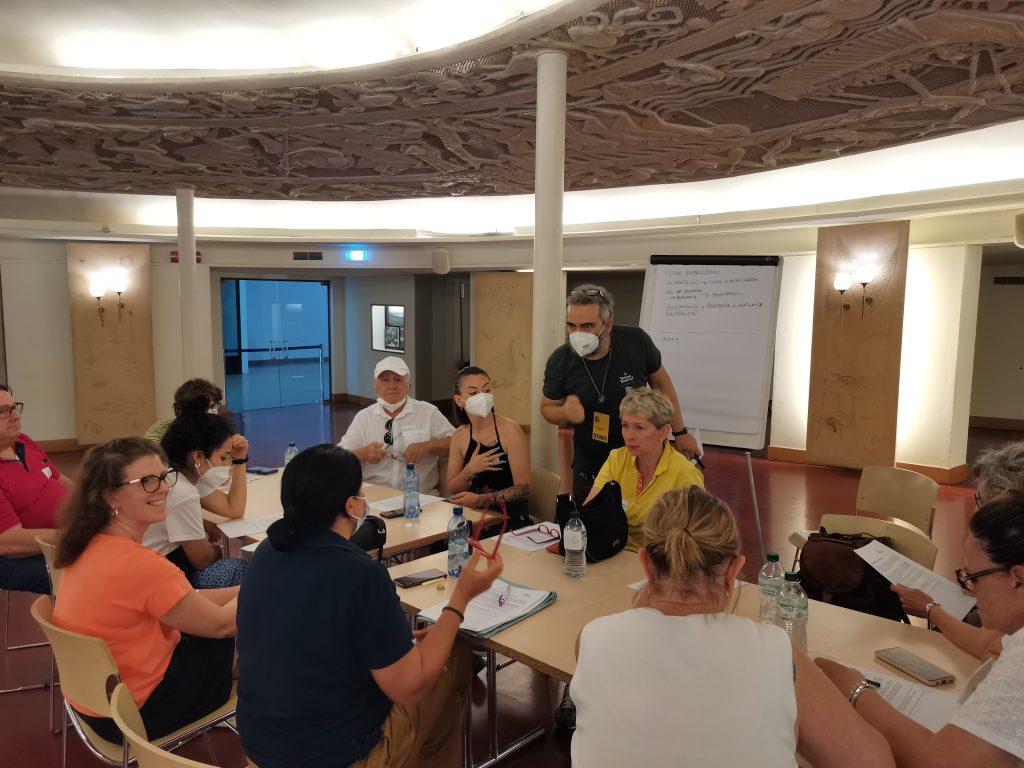Vulnerable People's thoughts on Policy Recommendations

© Museo Nazionale della Scienza e della Tecnologia Leonardo da Vinci
16 September 2022
In recent months, we have had a final exchange with vulnerable people on how to shape the energy transition in the EU so that it is also fair for people who have little money. In each participating country, Fair Energy Forums (FEF) were organised. Their overall goal was to ensure that the policy recommendations, developed in the preceding expert meetings, actually represent the voice of the target group. The forums consisted of citizens who took part in the initial Focus Groups as well as further vulnerable people: e.g. long-term unemployed people, senior citizens affected by poverty, young people without a school-leaving certificate or with difficulties in finding a job or job-training opportunities, single parents and people with a background of migration. During the FEF, the participants took a closer look at the policy recommendations from their perspective, commented with their view and prioritised them according to importance.
Through this the FEF provides valuable insights that are important for shaping political measures, as the participants’ perspective rarely finds its way into the political debate. While the overall analysis of results is still ongoing, this article will zoom in on the discussions held in the different Fair Energy Forums across Europe and give a sneak peek on the upcoming synthesis of all national reports.
What does ‘fair’ mean?
In order to take measures for a fair energy transition, the concept of fairness must be defined first. Is it fair if all citizens are considered for benefits and subsidies or should only people in need have access to them? Can there be measures that are really fair for all? Many FEF participants did not believe so – in their opinion, fairness should rather be thought from a collective perspective: “What measures work for a majority of people – even if they are disadvantageous for a minority?” (participant from Spain).
The definition of fairness is connected to the question of a target population for fair energy transition measures: Is it possible to single out ‘vulnerable people’ as a group that measures should specifically focus on? Some participants concluded that it would be better to improve conditions for everyone instead of just a particular group. Other participants believed that fair measures should benefit everyone – “but strong shoulders should carry more” (participant from Germany). Financing models in public transport, for example, should be more favourable for all and could be linked to one’s income. But, as a Spanish participant put it: “Vulnerability touches on many aspects of human life and goes beyond income.” In general, needs vary according to individual situations. Therefore, many participants advocated individual solutions for different groups such as pensioners, unemployed, pupils or students – especially on the topics of public transport and housing.
Getting in touch with people
An individual and tailor-made approach was also considered important on a regional level. A Polish participant said: “If we pay attention to people’s problems in specific regions, we will be able to create more comprehensive solutions for them, more tailored to their needs. After all, in each region, these problems are different, their inhabitants face different problems.” This approach starts with raising awareness by going out to meet people: Participants considered it useful to establish fixed contact persons to exchange on energy transition matters – local ‘energy tutors’ who are considered reliable and trustworthy. They would be able to communicate and give support, including actively tracking down people who might need help. Doing so, they could play a crucial role for the accessibility and effectiveness of services.
This represents an idea of community that leaves no one excluded. An idea which recurred among the participants: Community – understood as helping, sharing and including everyone – emerged as a powerful tool to ensure inclusion and accessibility.
Leaving no one behind
Accessibility for vulnerable groups was another important factor in the FEF’s evaluation of measures. Many participants felt that currently, energy-efficient solutions – and subsidies – are available primarily to better-off groups. “On top of that, there is a lot of bureaucracy”, a Polish participant noted. “People who are less informed or less resourceful are currently completely excluded from the process.” In this context, some participants were concerned about the reach and coverage of some of the experts’ recommendations – especially regarding people in extraordinary living and working situations or without access to digital services.
In conclusion, the Fair Energy Forums showed that the overall method used in the Fair Energy Transition for All project – listening to vulnerable people, developing policy recommendations based on their input and getting feedback from the target group on these policy recommendations – worked well: At the beginning, many participants showed distrust in politics, and they perceived a lack of agency as well as self-efficacy. At the end of the ‘sandwich process’, most participants felt like their voices were being heard and taken seriously. The next phase will focus on outreach to make sure that as many decision-makers as possible will be able to draw upon the insights gathered through Fair Energy Transition for All.
